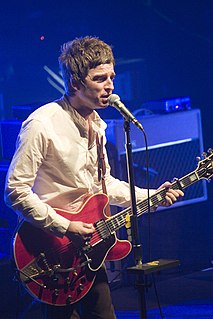A Quote by D.T. Suzuki
Thought creates things by slicing up reality into small bits that it can easily grasp. Thus when you are think-ing you are thing-ing. Thought does not report things, it distorts reality to create things, and as Bergson noted, "In so doing it allows what is the very essence of the real to escape." Thus to the extent we actually imagine a world of discrete and separate things, conceptions have become perceptions, and we have in this manner populated our universe with nothing but ghosts.
Related Quotes
I think we create our world through stories. We use storytelling to escape or protect ourselves from the unimaginable and the horrible - from the real, in a way. It's like white light - if you put everyday reality through a prism you get this rainbow of colors that you couldn't see before. I'm interested in exploring the world to show the things that are invisible. And not just undocumented aspects of reality, but to actually make manifest things that have been hitherto invisible through the intervention of filmmaking.
The only reality we can ever truly know is that of our perceptions, our own consciousness, while that consciousness, and thus our entire reality, is made of nothing but signs and symbols. Nothing but language. Even God requires language before conceiving the Universe. See Genesis: “In the beginning was the Word.
Evolving Culture, Reality, as we perceive it, is largely shaped by the artifacts, both material and symbolic, of thought, thought that leads to creative manifestation in form and color. With that in mind, it might be suggested that the visual artist, - from commercial designer to fine art painter - has much to do with most things that enter your everyday visuals, and thus form a major portion of one's reality and, certainly, how this culture manifests and evolves.
I never thought that I would become a staple in the Australian cultural diet. The equivalent of bread or milk, or a fine old Tasmanian Mauve Vein. I think it's because I talk about things that people dare not mention. I don't mean raunchy things or unsavoury things. I call a spade a spade - I discuss things in a realistic manner.
So this is reality, this forgiveness, this reconciliation, is true for everybody. Paul insisted that when Jesus died on the cross, he was reconciling "all things, in heaven and on earth, to God." All things, everywhere. ...This reality then isn't something we make come true about ourselves by doing something. It is already true. Our choice is to live in this new reality or cling to a reality of our own making.
It is remarkable how liberating it feels to be able to see that your thoughts are just thoughts and that they are not 'you' or 'reality.' For instance, if you have the thought that you have to get a certain number of things done today and you don't recognize it as a thought but act as if it's the 'the truth,' then you have created a reality in that moment in which you really believe that those things must all be done today.
In ordinary life, we are not aware of the unity of all things, but divide the world into separate objects and events. This division is useful and necessary to cope with our everyday environment, but it is not a fundamental feature of reality. It is an abstraction devised by our discriminating and categorising intellect. To believe that our abstract concepts of separate 'things' and 'events' are realities of nature is an illusion.
One of the things I have taken for granted, in terms of how technology works in the world, is the people that develop it and get it out there don't really know what we are going to do with until we have really gotten ahold of it and it has become ubiquitous. And then we wind up doing things that its inventors never dreamed of and those things become the real change drivers. That is actually where the whole technocracy thing falls apart for me, because the people who invented it can't predict what we're going to do with it.
Then there is the further question of what is the relationship of thinking to reality. As careful attention shows, thought itself is in an actual process of movement. That is to say, one can feel a sense of flow in the stream of consciousness not dissimilar to the sense of flow in the movement of matter in general. May not thought itself thus be a part of reality as a whole? But then, what could it mean for one part of reality to 'know' another, and to what extent would this be possible?


































